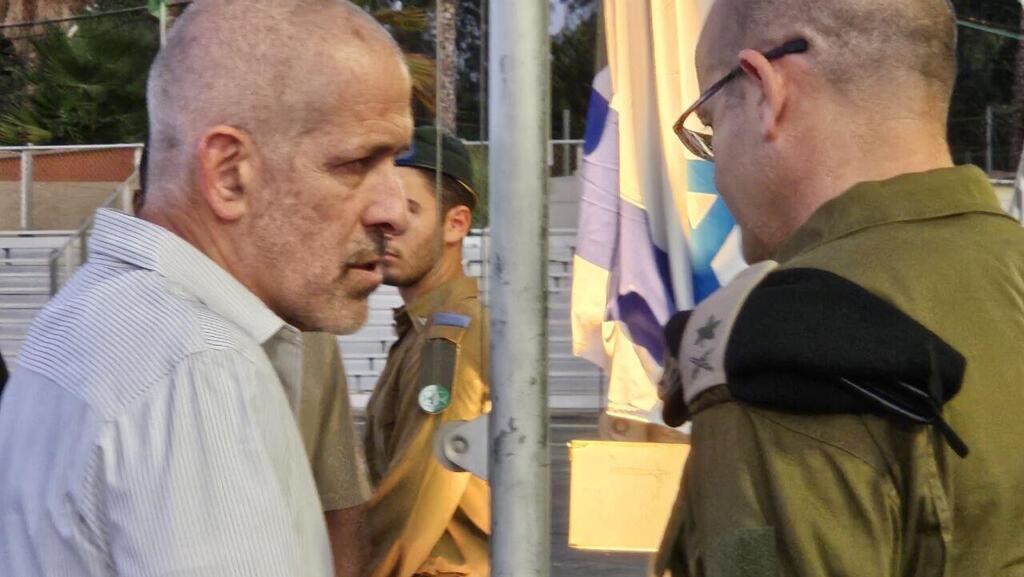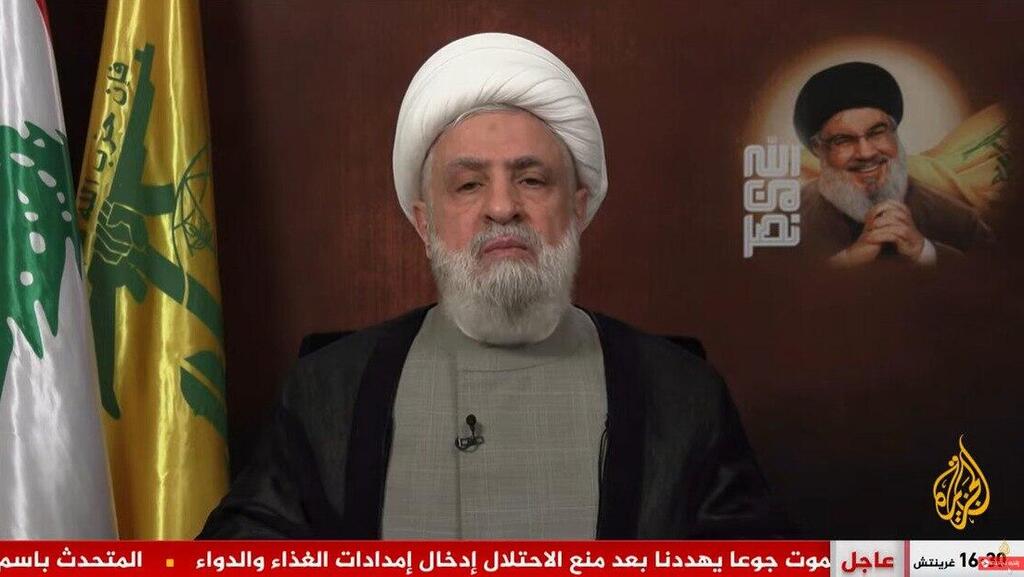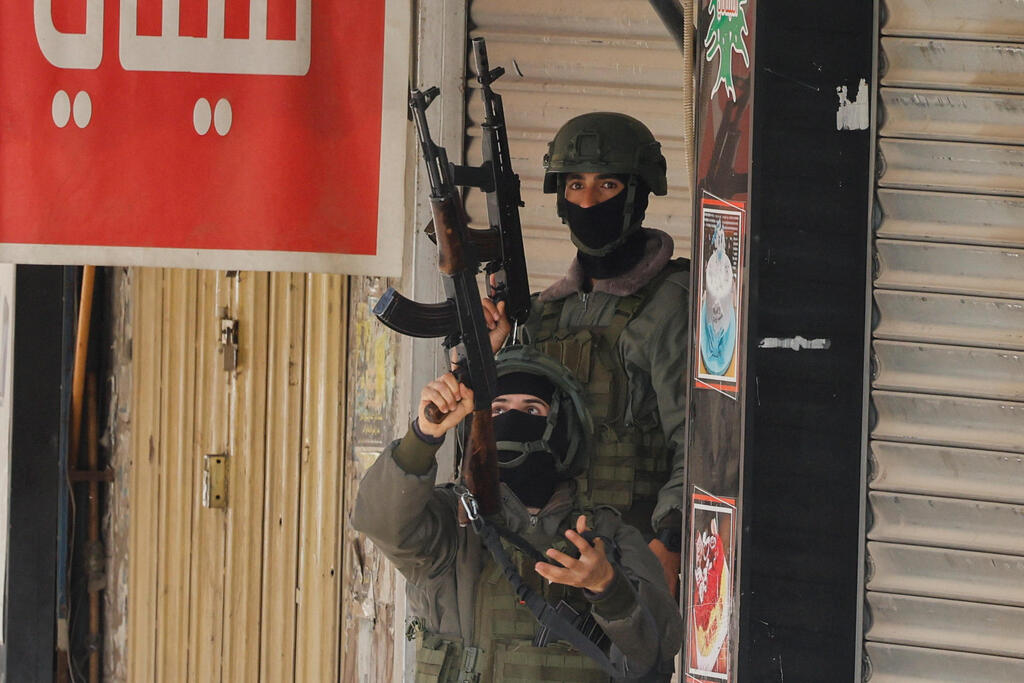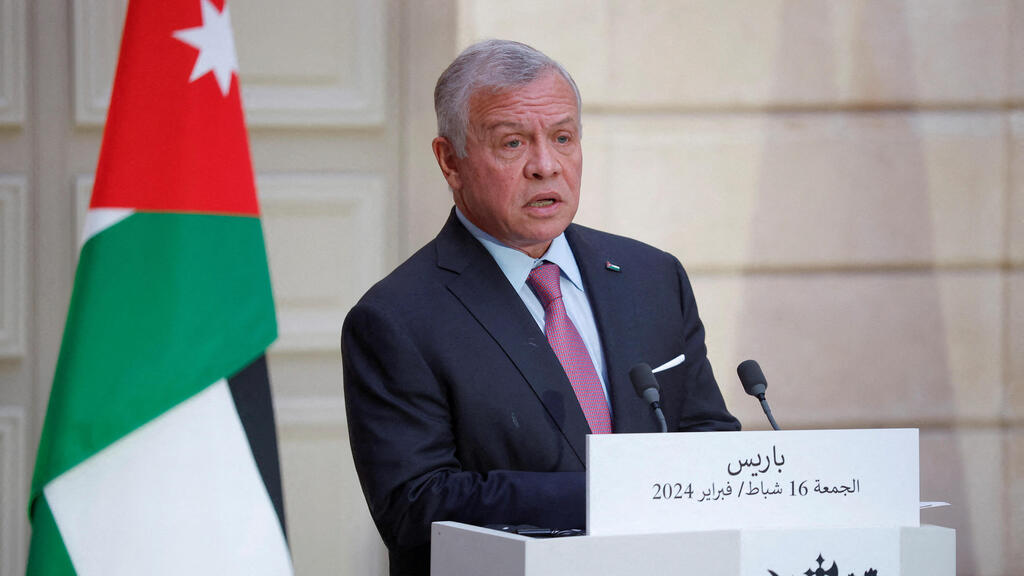Getting your Trinity Audio player ready...
Even long-time veterans of Middle Eastern affairs find it hard to believe how quickly the impossible becomes reality. The only option is to look ahead to the next challenge. These rapid upheavals also bring new threats.
Following the failures exposed by the October 7 massacre, which left deep scars on military intelligence, efforts are underway to view the collapse of the Shiite axis not as the end of a chapter but as the beginning of new threats emerging after the fall of the Assad regime and the weakening of Hezbollah. All eyes are now on Jordan and the West Bank.
5 View gallery


Deposed Syrian dictator Bashar Assad with Iran's Supreme Leader Ali Khanenei
(Photo: Ali Haj Suleiman / Getty Images, AP)
There are two significant developments to watch. The first is the ongoing battles for control in Jenin, where the Palestinian Authority's security forces are clashing with armed groups, including Hamas operatives.
The second is the rare visit to Jordan by Shin Bet chief Ronen Bar and IDF Military Intelligence head Maj. Gen. Shlomi Binder. While details of their visit remain sparse, it is likely that concerns over Jordan's stability and efforts by local groups to replicate a Syrian-style revolution in Amman were central topics of discussion.
IDF officials believe such an eventuality could quickly spread to Palestinian cities in the West Bank. The potential for a domino effect, similar to the 2011 Arab Spring, cannot be ruled out in the current volatile circumstances. The concerns are heightened as the Shiite axis, once appearing strong after the October 7 attacks, has been severely weakened by Assad’s fall.
Iran's Supreme Leader Ali Khamenei addressed his nation last week, attempting to justify the tens of billions of dollars spent over decades propping up a fragile dictatorship in Syria. Iran must now reevaluate its strategy of building proxy forces as the collapse of its regional alliances brings new challenges.
Ali Khamenei addresses followers following fall of Assad regime
Hezbollah, Iran’s most prominent proxy, was once seen as a key defense against potential Israeli attacks on Iran’s nuclear program. However, it has failed in this role. The collapse of Assad’s regime marks a new reality for Iran, requiring a different approach to its objectives.
Iran may now choose between two paths: accelerating its push for nuclear capability, as some in the West fear, or seeking a swift deal with the incoming Trump administration, which, despite tough rhetoric, is expected to avoid a war that could harm the U.S. economy.
Hezbollah leader Naim Qassem appeared despondent in his recent public appearances, acknowledging that the loss of Assad has severed Hezbollah's most critical logistical supply route. For years, Syria served as a conduit for weapons from Iran to Hezbollah and even produced many of the missiles used against Israel in the war.
Get the Ynetnews app on your smartphone: Google Play: https://bit.ly/4eJ37pE | Apple App Store: https://bit.ly/3ZL7iNv
Hezbollah’s finances, largely dependent on Iranian oil shipped to Syria and sold for profit, have also taken a hit. The fall of Assad’s regime strikes at both Hezbollah’s military strength and its financial base, just as the group faces pressure to compensate Shiite residents of southern Lebanon whose homes were destroyed in the war.
The repercussions are being felt in the West Bank. Armed clashes have erupted in Jenin between local gangs and Palestinian Authority security forces. These developments prompted Israel’s Cabinet to meet at IDF Central Command on Sunday, reflecting growing concerns that events in Syria could inspire terror attacks and violence in the region.
The PA described its counter-terror operations as an effort to restore order and ensure the safety of residents. "We are working to remove criminals disrupting daily life and preventing residents from receiving services and living in freedom and security," the PA said.
The PA’s actions are seen as an attempt to prove its governance capabilities, particularly with an eye on potentially assuming control of Gaza after the war. For Israel, the outcome of these efforts serves as an important test case for Palestinian leadership.
Reports have also surfaced of past Iranian attempts to destabilize Jordan’s monarchy and use the kingdom as a new base for launching attacks against Israel. The IDF’s establishment of a new division tasked with securing the eastern border, along with the construction of a barrier along the frontier, underscores the seriousness of these threats. Bar and Binder’s visit to Amman likely addressed these issues as well.
All these challenges add to the broader demands of the ongoing war: enforcing compliance with the cease-fire in Lebanon, ending the war with Hamas, securing the release of Israeli hostages in Gaza—whether through negotiation or military action—and addressing the continued attacks by Yemen's Houthi rebels.










